2008 Induction Ceremony, Awards Presentation and Reception
The University of Toledo
Center for Creative Education
April 5, 2008
7:30 - 9:30 p.m.
Program
| Introduction and 2008 Awards Presentation | Daniel J. Saevig Associate Vice President Alumni Relations - University of Toledo Toledo, Ohio |
|
Posthumous Award
|
Posthumous Acceptance |
|
Peter Hotez, M.D., Ph.D. |
|
| Editha Cañete-Miguel, M.D., F.P.C.P. Founder and Executive Director, Agape Rural Program, Philippines |
|
| Victor Rambo, M.D. (Posthumous) Ophthalmologist and missionary to India |
Posthumous Acceptance |
| Jon Bul Dau | |
| Representative Marcy C. Kaptur |
2008 Recipients:
Nathan Barlow, MD (Posthumous)
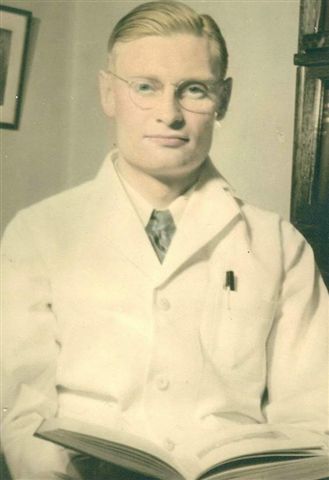
Director, The Mossy Foot Project
The many subsistence farmers in rural Ethiopia know too well about mossy foot disease, a debilitating physical condition resulting from barefoot farming on volcanic soils. It’s easy to prevent if one can afford shoes and socks, but remains a scourge among poverty-plagued Ethiopians who can receive vocational training and shoes for their children at one of 15 clinics — collectively, The Mossy Foot Project — devoted to treating this disease with medicine, surgery, shoes, vocational training and the Gospel message.
Impressive as the project is, it came near the end of the long career of service given by its founder, Nathan Barlow MD, who began the first Mossy Foot Treatment and Prevention Center in 1997, partnering with doctors at Soddo Christian Hospital, with which he had been affiliated for many years.
Dr. Barlow, who took his medical degree at the University of California at Berkeley, his wife, Doris, and their four children arrived in Africa in 1945 to do missionary work. The family served in the Wolaitta region of Ethiopia until the establishment of a Marxist government in 1977; to this day, according to a pastor who knew Nathan well, “in southern Ethiopia, Dr. Barlow is a legend.”
He treated every condition from gunshot wounds to spinal meningitis to bowel obstructions to blinding diseases of the eye, all in a hospital that would be considered primitive by today’s standards. He was a gifted teacher who started a school for wound-dressers who became nurse, lab technicians, community health workers and surgeons. All pretty amazing for a doctor who blind in one eye!
Always upbeat and imbued with a sense of life’s fundamental adventure, Dr. Barlow was as tireless in his battle against disease and death as he was in recruiting other physicians to join him with service to God and their fellow humans.
While the new Ethiopian government precipitated the Barlows’ departure from that country, they were not ready for retirement. They continued their medical mission work in Niger, Kenya, Zaire and the Central African Republic. Doris died when she was 78 and Nathan was 81. Despite a serious bout with malaria, he became involved in treatment of mossy foot; the clinic soon followed.
Despite such accomplishments, Nathan’s humility was apparent. While he was working in the Central African Republic, for instance, a French television crew approached him about making a documentary of his life. He turned them down, saying he was concerned that it might interfere with his work.
Although Nathan died in 2004 at age 91, that work — treating thousands of patients yearly — continues today.
Peter Hotez, MD, PhD
President, Sabin Vaccine Institute, Walter G. Ross Professor and Chair, Department of Microbiology, Immunology and Tropical Medicine, The George Washington University and Sabin Vaccine Institute, Washington D.C.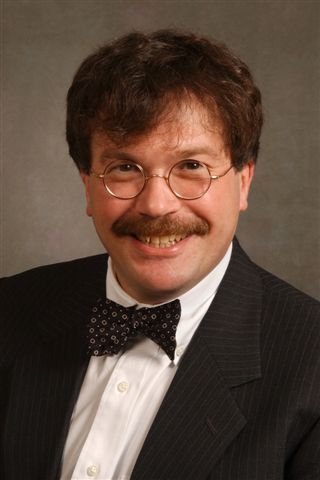
An internationally recognized medical parasitologist, vaccinologist, and tropical disease expert, Dr. Hotez — who earned his medical degree at Cornell University and took his PhD in biochemical parasitology from Rockefeller University — is breaking new ground in the control of neglected tropical diseases caused by parasitic helminths, or worm parasites, and the development of vaccines that combat them. He heads a non-profit product development partnership department at George Washington University Medical Center that, along with substantial ongoing microbiology research projects, is unique in its scope as it seeks to develop new vaccines and drugs for previously neglected diseases in developing countries.
Dr. Hotez was a pediatric medical resident at Massachusetts General Peter Hotez Hospital and completed a fellowship in pediatric infectious diseases in 1991 at Yale University School of Medicine. Human Hookworm Infection and Schistosomiais have been the focus of Dr. Hotez’s research. Currently, he is working on a vaccine to combat the worldwide prevalence of hookworm, an ancient scourge that still affects a billion people globally and almost 200 million in Sub-Saharan Africa alone. The World Health Organization and World Bank report that hookworm and allied diseases are leading causes of childhood and maternal disability in the developing world.
Dr. Hotez works in rural areas of Brazil where hookworm infection is highly endemic greatest and he has an established a collaboration with the major institutions in Brazil including the Oswaldo Cruz Foundation and Instituto Butantan, as well as in China with the Institute of Parasitic Diseases in Shanghai. Since Brazil has some of the highest prevalence rates of hookworm in the world, it is an ideal place to study the ecology and genetic diversity of the worms, according to Dr. Hotez. In addition to genetic engineering of a recombinant vaccine for helminth infections, Dr. Hotez also directs research toward genetic engineering of new biopharma-ceuticals from parasitic helminths.
As part of an anti-poverty vaccine initiative, he serves as principal scientist of the Human Hookworm Vaccine Initiative (HHVI), a public development partnership sponsored by the Sabin Vaccine Institute with major funding from the Bill and Melinda Gates Foundation. HHVI serves to promote research and development, vaccine dissemination, research-based innovation and public advocacy.
He also co-directs the Global Network for Neglected Tropical Disease Control, a multinational initiative to control neglected tropical diseases with preventive chemotherapy anti-parasitic and anti-bacterial drugs. It’s making strides in disease control in Sub-Saharan Africa and tropical regions of the Americas.
In 2007, Dr. Hotez became the president of the Albert B. Sabin Vaccine Foundation and was a council member of the American Society of Tropical Medicine and Hygiene. In 1999, he received the prestigious Henry Baldwin Ward Medal of the American Society of Parasitologists, in 2003, the Bailey Ashford Medal of the American Society of Tropical Medicine and Hygien, and, in 2006, and the Leverhulme Medal of the Liverpool School of Tropical Medicine. He is the author of over 250 papers, including papers in the New England Journal of Medicine, Lancet, and Science, and books including his forthcoming offering, Forgotten People and Forgotten Diseases (ASM Press) and he is co-author of Parasitic Diseases, in its fifth edition, and Krugman’s Infectious Diseases of Children (1998), and he has been cited in national newspapers and magazines and National Public Radio regarding his hookworm research.
Editha Cañete-Miguel, MD, FPCP
Founder and Executive Director, Agape Rural Program, Philippines
Dr. Canete-Miguel is a great believer in the Biblical message (2Timothy 2:2) of multiplication: “training a few so that they too can train others. That has become my guiding principle in my life,” she says. “I chose to be involved in programs or jobs that allow me to train others so I can have a greater impact.” That’s evident in her long record of service, particularly as founder and executive director of Agape Rural Program (ARP) in her native Philippines — especially in Palawan Province, one of the nation’s difficult to reach and poor regions during the 1980’s. ARP seeks to improve the health conditions of rural communities through holistic health development projects. More than 200 health-care professionals and those in other fields have received the training enabling them to Editha Canete-Miguel provide health services to more than 60,000 Filipinos. They’ve also in turn trained more than 4,000 community health leaders in six provinces of the nation.
In addition to direct-line health care, ARP has also worked to improve community water systems, control diseases that include malaria and tuberculosis, improve nutrition among malnourished tribal children, and implement an educational program for the same tribe. Livelihood projects are also helping alleviate chronic poverty.
Dr. Canete-Miguel readied herself for the founding of such a far-reaching program through her own experience as a community doctor and health trainer in Benguet, under the Barangay (Village) Great Commission Training Center of Philippine Campus Crusade for Christ. She’s also served as a holistic health-care trainer in Sri Lanka and in India. She served as project consultant for a women’s reproductive health initiative and as provincial coordinator for a large forum on domestic violence, the last two in the Philippines. She continues to serve as a volunteer community preceptor of the University of the Philippines College of Medicine, where she completed her medical degree in 1978.
As executive director of Alayka Palawan, the first province-wide health program in the Philippines, Dr. Canete-Miguel oversaw the training of thousands of community leaders and village health workers. “It empowered the local people by putting their health care in their own hands,” she says.
Her reach extends to further continents; for more than 20 years she’s coordinated yearly medical projects in China and other Asian countries. She also served as a trainer in the United States, for Global Hope Network International.
“Looking back, I can see God’s hand orchestrating everything for me,” she says. “I am very blessed to have a husband, Jun, who shares the same passion to help those in need, and a very supportive daughter, Jabesse. Together we continue to mentor individuals to be change agents, helping needy communities looking for innovative ways to improve the quality of life of the people we serve.
“We seek to bring lasting transformation by beginning with inner transformation in the lives of the people as they invite Jesus Christ to be the Lord of their lives and their dreams.’Only one life it will soon be passed, only what’s done for Christ will last.’”
Victor C. Rambo, MD (Posthumous)
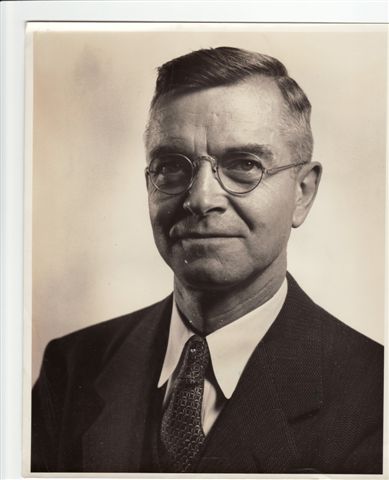
Ophthalmologist and missionary to India
Victor Clough Rambo was born in India in 1894 to missionary parents and grew up there until he was about nine years old. Praying for God’s direction for his life, he found it in medicine, where his education was funded through relatives, scholarships and odd jobs. Challenged by the Student Volunteer Movement, Dr. Rambo surrendered his career to missions, turning down a prestigious opportunity to join the staff at the University of Pennsylvania in Philadelphia where he had taken his training. When pressured by the staff to reconsider, Victor said, “I’m sorry, sir. I appreciate your confidence, but I have already committed myself to be a missionary. It’s a commitment I made to God. There will be no change.”
Rambo was assigned to India by the same mission board his father William Eagle Rambo had served under, and soon found his great passion in restoring sight to the blind, both physically and spiritually. However, Dr. Rambo, who would become one of the most famous eye doctors in the world because of his treatment of India’s eye diseases, had never removed a cataract. It was not part of his medical training in the United States. But in India, where so many eyes needed care, Dr. Rambo soon learned how, and later extended his studies in centers of ophthalmology in Philadelphia, Scotland, Austria and elsewhere.
With an estimated five million Indian people blind, Dr. Rambo put considerable thought in how to cure the largest numbers. One way to fix more eyes was to recruit more doctors. Another was to train medical students. As professor and surgeon at the Christian Medical Colleges in Vellore and Ludhiana and the Christian Hospital in Mungeli, Dr. Rambo did both. Sometimes he even held his students’ hands in his own to teach them the procedure.
One day an idea came to him. Why not hold eye “camps” in the villages, where the people were? Dr. Rambo’s team worked out a system. An advance man went to a village to advertise the camp. On the set day, the eye team arrived and cleaned out the school or church or factory where the surgery would take place. The eye team examined the patients to see who had cataracts or other eye diseases and tagged them to show what should be done. Before treatment began, patients and families were told that their eyes were being cured in the Name of Jesus. Sometimes Dr. Rambo tap-danced (on a table) to make people laugh and ease their fear of the knife. Then surgeries began. Often they would last until late at night. Families of the patients cared for them until discharge.
Thousands of Indians recovered their sight. Success rates were equivalent to those in American hospitals at that time. Rambo formed more eye teams and imitators opened eye camps in India and in other nations.
Among his public recognitions was the Kaisar I Hind Gold Medal for public service in India, given to him by Britain’s King George VI in 1947, as well as being made an Honorary Fellow of the Royal College of Surgeons, Edinburgh. He co-authored (with Arin Chatterjee) “The Curable Blind-Guide for Establishing and Maintaining Mobile Eye Hospitals”. He died in 1987, having served in India with his supportive wife, Louise, for 50 years.
Lawrence V. Conway Distinguished Service Award
John Bul Dau
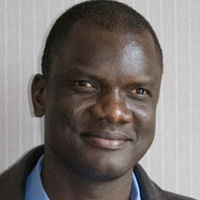
In 1987, at age 13, John Bul Dau fled his home in southern Sudan, narrowly escaping troops sent to exterminate all black Christian males and starting a perilous journey spanning more than 1,000 miles and 14 years. He joined thousands of boys, now known as the “Lost Boys of Sudan,” who were crossing sub-Saharan Africa on foot. Many boys were killed or abducted before reaching a refugee camp in Kenya, where Dau spent the next ten years. After a United States church volunteered to sponsor several Sudanese refugees, Dau, who had never John Bul Dau seen electric lights or flush toilets, entered America. The story of his cultural relocation and assimilation is traced in the award-winning documentary God Grew Tired of Us. “The filming meant giving up my privacy,” Dau explains, “but I knew it might spread the word and help my people.”
Helping his people has become a focus of Dau’s life; he also works 60 hours a week while taking classes toward a degree in public policy from Syracuse University. Through Dau’s initiative, the Sudanese Lost Boys of New York Foundation was established, raising funds for Sudanese refugees. Dau also created the American Care for Sudan Foundation, which has raised more than $170,000 to build a clinic in southern Sudan. He is president of the John Dau Sudan Foundation, where he is working to raise funds for health and education projects in southern Sudan (www.johndaufoundation.org).
Lawrence V. Conway Lifetime Distinguished Service Award
Representative Marcy C. Kaptur
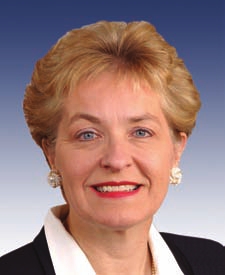
Kaptur was born in Toledo, Ohio, receiving a bachelor of arts degree from the University of Wisconsin (Madison) in 1968 and a master of arts degree from the University of Michigan (Ann Arbor) in 1974. Following post-graduate studies at MIT, Kaptur served on the Toledo-Lucas County Plan Commissions and as director of planning for the National Center for Urban Ethnic Affairs. She also served in the Carter administration as a domestic policy adviser.
She was elected as a Democrat to the U.S. House of Representatives and has served for thirteen successive Rep. Marcy C. Kapur Congresses, from 1983 to the present.
It was one of her constituents, Roger Durbin, who first suggested the creation of a World War II memorial in Washington, D.C. Kaptur spearheaded the project and the memorial opened in 2004. Kaptur represented Ohio as a delegate to the 2000 Democratic National Convention and 2004 Democratic National Convention. She is widely considered to be one of the most distinguished and progressive members of Congress, serving on the House Appropriations Committee, the House Budget Committee, the Subcommittee on Agriculture, Rural Development, Food and Drug Administration and Related Agencies, the Subcommittee on Defense and the Subcommittee on Transportation, Housing and Urban Development and Related Agencies.


